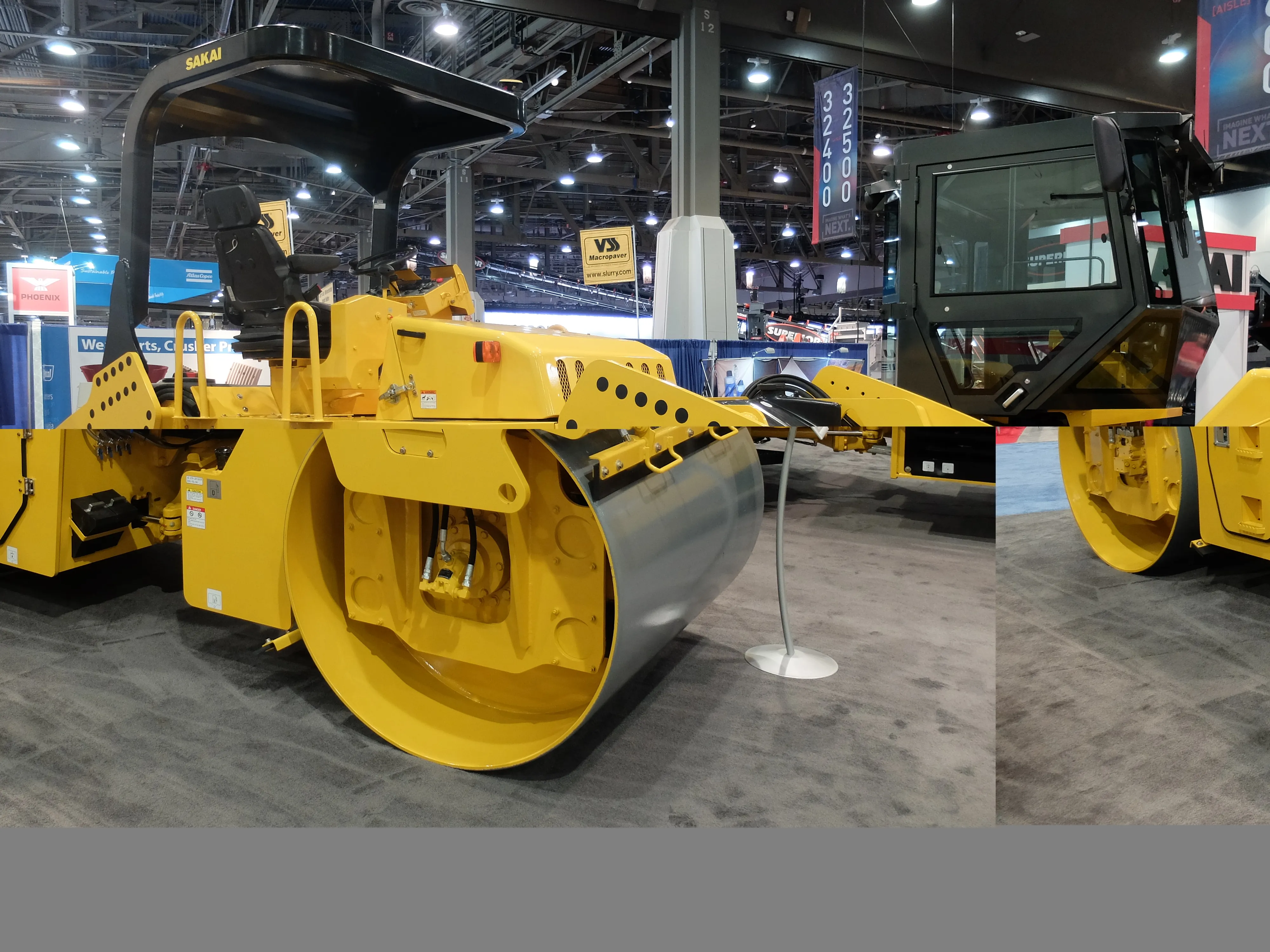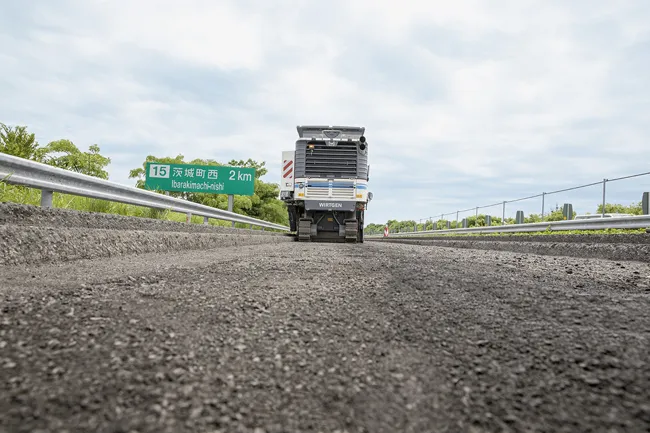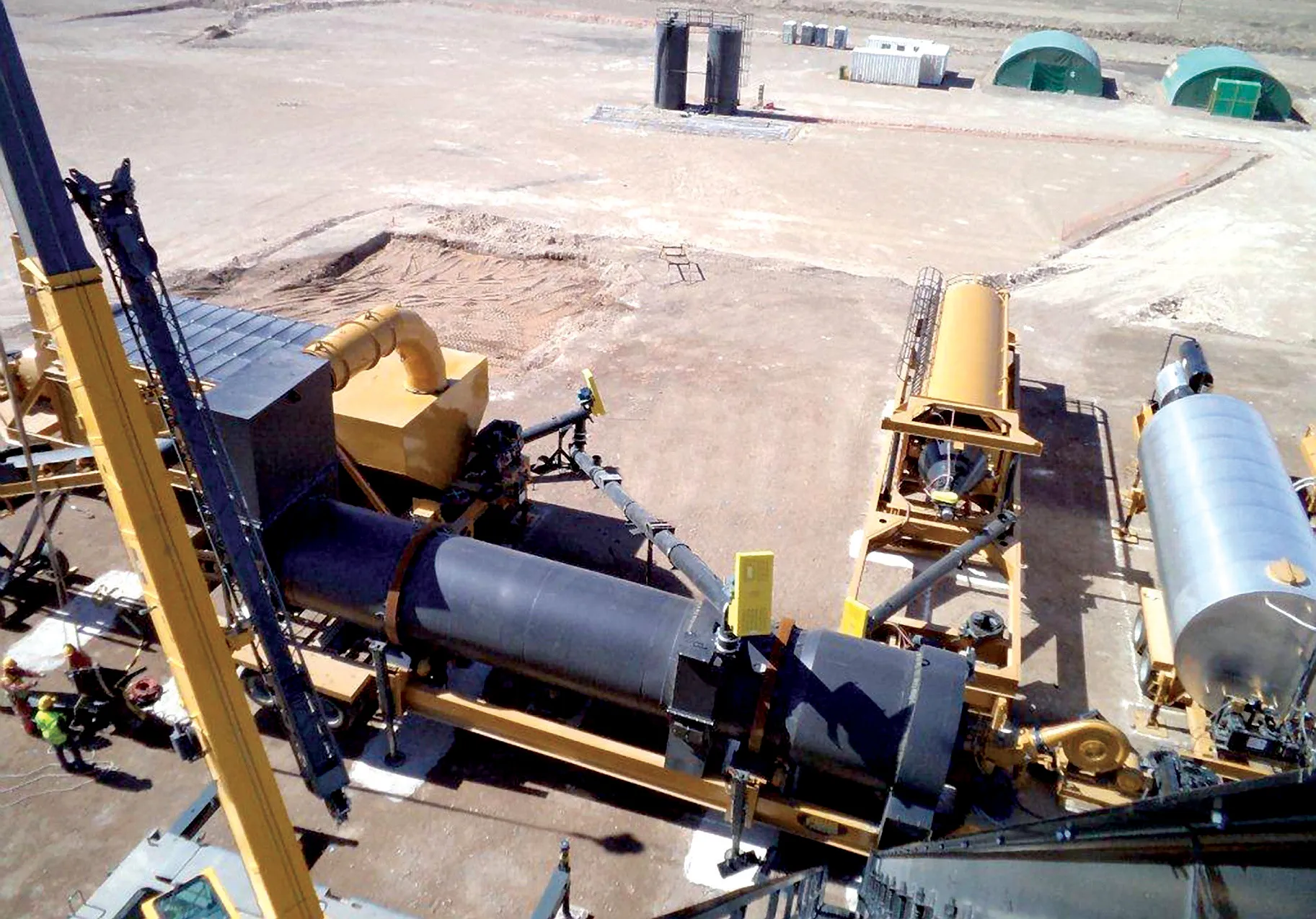
Equipped with Astec’s latest technology, this is a low emissions plant and is the first in Latin America that features the firm’s V-Pack Stack Temperature Control. The low emissions performance was a key factor in the supply deal, so as to meet the needs of the authorities in Mexico City.
The plant is equipped with Astec’s Phoenix Talon low emissions burner with silencer, so it minimises fumes as well as operating noise. The plant can also use a recycled feed with up to 50% RAP and has been fitted with dual RAP bins, while it also has a Green System capable of making warm mix. The plant was also specified with three NG Silos allowing long-term storage (three days guaranteed by Astec).
The plant was specified with a four-compartment cold feed system and a weighing system as well as a dual deck scalping screen. The plant is designed to meet sustainability targets and its 2.44m Double Barrel drum is capable of using a feed containing 50% RAP. In addition, the low emissions Phoenix Talon burner can be fuelled by either gas or oil and is equipped with an Air Blower Silencer for quieter operation.
The plant has Astec’s novel Double Barrel Green System, which can be utilised for making warm mix while it is also equipped with the firm’s sophisticated V-pack Stack Temperature Control System. Important capabilities of this plant configuration include the ability to control stack temperature, achieve a wider veil of aggregates and eliminate hot spots. The user can also change mix designs easily with no need for time-consuming flight changes while the configuration is also said to ensure increased drum efficiency.
The plant is capable of maintaining production at 7% moisture at an altitude of 2,200m. It has an inertial separator system with a Pulse Jet Baghouse that includes aramid fibre bags for more precise dust control as well as offering enough capacity to run RAP. There are three large AC tanks, two of which have mixer agitators capable of storing polymer asphalt binders. Other features include dual recycle feed bins, a RAP scalping screen with weighbridge, PMII mix blending controls, dual hot oil heaters, twin pump asphalt metering and a 350 DBL dry additive system.









